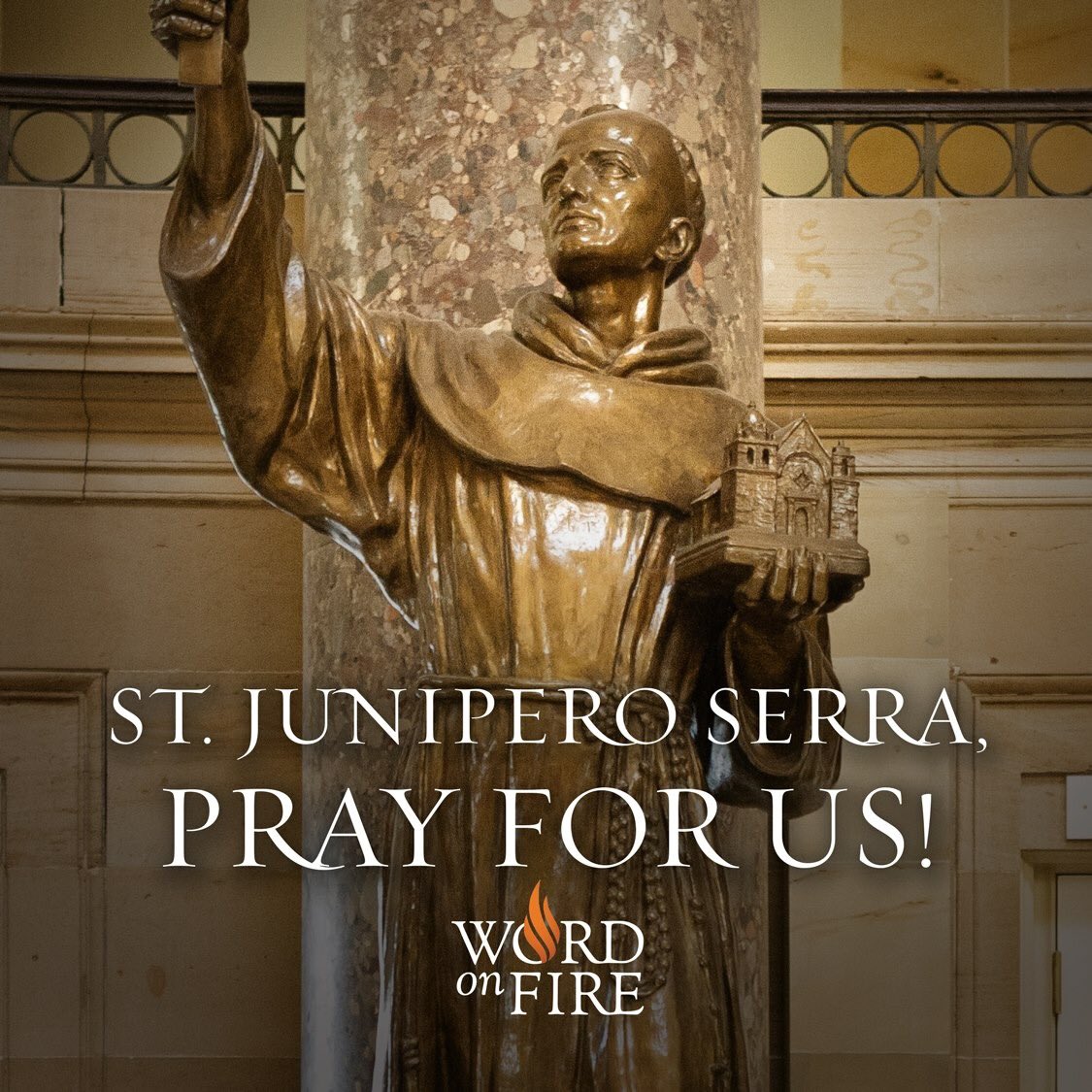1. I found this quite beautiful, from the Adopt-a-Priest website:
The Greeks approach Phillip voicing a very deep human need and desire–they want to see Jesus. In essence, they speak for all of us. And Phillip gains this favor for them. Whatever they are expecting, it is unlikely that the Greeks are quite prepared for the experience of being seen in turn by Jesus–of falling under the Light of Eternal Truth and Love in Person.
Pope St. John Paul II speaks of the innate desire we all share to see Jesus:
“The desire to see Jesus dwells deep in the heart of each man and each woman. Allow Jesus to gaze into your eyes so that the desire to see the Light and to experience the splendor of the Truth may grow within you. Whether we are aware of it or not, God has created us because He loves us and so we in turn may love Him. This is the reason for the unquenchable nostalgia for God that man preserves in his heart “Your face, Lord, do I seek. Do not hide Your face from me” (Ps 27:8-9). That Face–we know–was revealed to us by God in Jesus Christ.” Message for World Youth Day, 22 February 2004.
In this Encounter with Truth, Jesus reveals the depth of His love in the depth of His sacrifice. He shares our suffering in dying for us that we may share His glory and eternal life in the Resurrection: “And I, when I am lifted up from the earth, will draw all men to myself.”
Let us follow the example of the Greeks who gained the favor of seeing Christ by approaching first His priest. It is the mission and desire of every priest to lead others to Christ. Let us pray for all priests that they may show Christ to all people, in their own lives and works.
2.
"But rejoice in so far as you share Christ's sufferings…" | #dailyeSpiration from 1 Peter 4:13 pic.twitter.com/26TPXF55lq
— Steubenville (@go2steubenville) March 23, 2015
3. A year or so ago, I went to an author event at the Catholic Information Center in D.C. (which I’m on the board of, full disclosure). I got there, a little proud of myself for getting their a few minutes early even, and the crowd was at the door. Literally, standing room only, eventually actually out the door.
The speaker that night was Fr. Jacques Philippe – who wasn’t even speaking in English. He’s a French priest, a member of the Community of the Beatitudes (what a great name for an order!), and author of many books on spiritual direction; that is on peace, prayer, and the Holy Spirit. (I wrote about that night –in a piece titled “Governing the Interior” — here.)
Today he has the daily meditation in Magnificat, a devotional magazine you may have noticed I’m quite fond of, if you’ve read any of these lists and things before. (You can do yourself a favor and subscribe to it here.)
I share a little more from under the subscription lock than I probably should. But it’s with the prayer you might share and make it a part of your life.
The real spiritual battle, rather than the pursuit of invincibility or some other absolute infallibility beyond our capacity, consists principally in learning, without becoming too distracted, to accept falling occasionally and not to lose our peace of heart if we should happen to do so lamentably, not to become excessively sad regarding our defeats and to know how to rebound from our falls to an even higher level. This is not always possible, but on the condition that we not panic and that we continue to maintain our peace.
One could, then, with reason, enunciate this principle: The first goal of spiritual combat, that toward which our efforts must be above all else be directed, is not to always obtain a victory (over our temptations, our weaknesses, etc.), rather it is to learn to maintain peace of heart under all circumstances, even in the case of defeat. It is only in this way that we can pursue the other goal, which is the elimination of our failures, our faults, our imperfections and sins. This is ultimately the victory that we must want and desire, knowing, however, that it is not by our own strength that we will obtain it and, therefore, not pretending that we can obtain it immediately. It is uniquely the grace of God that will obtain the victory for us, whose grace will be the more efficacious and rapid, the more we place maintaining our interior peace and sense of confident abandonment in the hands of our Father in heaven.
Speaking of the spiritual battle, you want to check out this handbook.
4. Today is the feast day of Saint Turibius of Mongrovejo. Read this line from a write-up:
baptized and confirmed nearly half a million people, among them St. Rose of Lima, St. Francis Solano, and St. Martin of Porres.
How awesome is a holy priest?! Pray for priests.
5. This is the Liturgy of the Hours today from St. John Fisher (bishop and martyr):
Our high priest is Christ Jesus, our sacrifice is his precious body which he immolated on the altar of the cross for the salvation of all men.
The blood that was poured out for our redemption was not that of goats and calves (as in the old law) but that of the most innocent lamb, Christ Jesus our Savior.
The temple in which our high priest offered sacrifice was not one made by hands but built by the power of God alone. For he shed his blood in the sight of the world, a temple fashioned by the hand of God alone.
This temple, however, has two parts. The first is the earth, which we now inhabit. The second is as yet unknown to us mortals.
Christ offered sacrifice here on earth, when he underwent his most bitter death. Then, clothed in the new garment of immortality, with his own blood he entered into the holy of holies, that is, into heaven. There he also displayed before the throne of the heavenly Father that blood of immeasurable price which he had poured out seven times on behalf of all men subject to sin.
This sacrifice is so pleasing and acceptable to God that as soon as he has seen it he must immediately have pity on us and extend clemency to all who are truly repentant.
Moreover, it is eternal. It is offered not only each year (as with the Jews) but also each day for our consolation, and indeed at every hour and moment as well, so that we may have the strongest reason for comfort. That is why the Apostle adds: He has secured an eternal redemption.
All who have embarked on true contrition and penance for the sins they have committed, and are firmly resolved not to commit sins again for the future but to persevere constantly in that pursuit of virtues which they have now begun, all these become sharers in this holy and eternal sacrifice.
Saint John sets this before us in these words: My little children, I am writing this to you so that you may not sin. But if anyone does sin we have an advocate with the Father, Jesus Christ the righteous one. And he is the propitiation for our sins, and not only for our sins but also for those of the whole world.
6.
— Christopher West (@cwestTOB) March 23, 2015
7. From homily notes from Fr. Roger Landry today:
• Jesus heals and helps the woman. He wasn’t just going to leave her there without any broken bones from stones cast. That wasn’t adequate. He said that no one was present any longer to condemn her and that he wasn’t condemning her either. Jesus had said elsewhere that he had come into the world not to condemn the world but that the world might be saved through him. And that’s what he wanted her to experience. He told her to go but from now not to sin any more. Jesus wasn’t soft on her sin of adultery. He wanted her free of it. But he offered her a totally second chance. Pope Francis said in his daily Mass homily for this Gospel last year in the Vatican: the woman “does not say it was a false accusation! She does not say ‘I have not committed adultery.’ She recognizes her sin. Then Jesus said: ‘Neither do I condemn you. Go, … do not offend God again; do not spoil the beautiful relationship between God and his people.’” Jesus, the Pope reminds us, “defends the [sinner] against a just condemnation.”
• That’s what Jesus likewise does for us. He doesn’t want us condemned because of our adultery against God in every sin we’ve committed, but at the same time he wants us to sin no more. With a note of realism, Pope Francis said last Lent, “How many of us should perhaps go to hell? And the condemnation would be just… but Jesus forgives and goes beyond. How? With this mercy!” Jesus doesn’t want us to be dragged by mobs to the temple area; rather he wants us to bring ourselves voluntarily to him in confession, from which he wants to heal us of our own accusations and strengthen us to go and sin no more. Jesus doesn’t want us to go to Hell. He wants us to follow him on the path of love and fidelity instead of lust and adultery. He wants us to recognize that he knows all our sins and writes them down, but not on stone, but on sand, because when they’re forgiven he can wipe them away. But at the same time he also commands us out of love not to sin any more. And instead of picking up stones to throw against other sinners, even with the slingshots of our tongues, he wants us to use those stones to build sturdy bridges of communion with others. It’s in that experience of his mercy that he strengthens us to defend both the innocent and the sinful.
• At the end of the first reading, by far the longest of the entire liturgical year, we see that “the whole assembly cried aloud, blessing God who saves those who hope in him.” That’s what we do here at Mass in gratitude for all that the Lord has done to defend us from the just consequences of our sins. Today the Lord Jesus, our Savior and Good Shepherd, reminds us that he is with us in every dark valley. But he doesn’t allow us to stay in that dark valley. He leads us through the Lenten process of sincere repentance with his rod and his staff to the verdant pastures where he sets a table for us and makes our cup overflow. Now let us get ready for that Eucharistic feast!
8. Oscar Romero was murdered 35 years ago this week. He will be beatified in May. Archbishop Gomez preached on his life and it’s witness yesterday:
In God’s Providence, the beautiful and challenging Gospel passage that we just heard was the same Gospel that was proclaimed at the final Mass celebrated by Archbishop Oscar Romero, 35 years ago this week.
As we just did, Monseñor Romero listened to the promise of Jesus:
Amen, amen, I say to you,
unless a grain of wheat falls to the ground and dies,
it remains just a grain of wheat;
but if it dies, it produces much fruit.
Whoever loves his life loses it,
and whoever hates his life in this world
will preserve it for eternal life.
After hearing this Gospel, Archbishop Romero gave a short homily, and in it he said:“One must not love oneself so much as to avoid getting involved in the risks of life that history demands of us. … But whoever out of love for Christ gives themselves to the service of others will live, like the grain of wheat that dies. … Only in dying does it produce the harvest. … Whoever offers their life out of love for Christ, and in service to others, will live like the seed that dies.”
Just a few minutes after he spoke those words, Monseñor Romero was dead. Shot through the heart by an assassin’s bullet as he offered the gifts of bread and wine for the holy Eucharist.
…
Monseñor Romero’s life was a journey that he walked in the company of his people. And he served his people with a pastor’s love, with a father’s love.
Archbishop Romero was pastor of a people living in desperate poverty and radical inequality. He lived in a time of terror and repression, when a new word was introduced into the ordinary vocabulary of the people— desaparecido, “the disappeared.”
He walked with his people during this dark time of sorrow and fear — living and working alongside this people, sharing in their struggles.
He said: “My position as a pastor obliges me to be in solidarity with all who suffer, and to make every effort for the sake of people’s dignity.”
My brothers and sisters, Monseñor Romero’s witness reminds us that the Catholic Church, in every time and every place — is always a pilgrim Church, always following the way of Jesus, always accompanying God’s people.
He showed us that the Church exists for only [one] reason — to carry on the mission of Jesus, his mission to evangelize and save the world. And that mission means the Church must always be a voice for the voiceless, a defender of the small and weak; a force for love and truth, dignity and justice — serving the poor and showing God’s mercy to all who suffer.
Archbishop Romero preached nonviolence and reconciliation in a time of hate and vengeance. He spoke out against every form of violence, every violation of the sanctity of life and the dignity of the human person. Not only political violence and repression. But he also spoke often about the violence of abortion.
Just eight days before he was killed, Archbishop Romero said: “Nothing is as important to the Church as human life, the human person, especially the lives of the poor and the oppressed. … Jesus said that whatever is done to the poor is done to him.”
Accompanying his people in their poverty and oppression — looking into the faces of the poor and those who were tortured and mistreated; looking into the faces of the children with nothing to eat — Monseñor Romero discovered the face of Jesus Christ.
And my brothers and sisters, the journey that Monseñor Romero made is the journey that every one of us is called to make as Christians.
Each one of us is called to follow Jesus in our own way and to reach out to our neighbors in need. Each one of us is called to seek the face of God — in the face of the poor, the immigrant, the prisoner, the sick, the hungry, the lonely.
So my brothers and sisters, let us go forward in his memory. May the seeds he planted with his life continue to bear fruit in our hearts and in the Church.
As Monseñor Romero did, let us follow Jesus with joy, love and gratitude. Let us carry the Gospel message of love and mercy into every corner of our world.
As he did, let us live for the love of Jesus and give ourselves to the service of others. May our lives produce much fruit — in this world and for eternal life.
9.
Jesus tells the gathered crowd, "Let the one among you who is without sin be the first to throw a stone at her."
— Bishop Olmsted (@BishopOlmsted) March 23, 2015
When the crowd disperses, he asks, "Has no one condemned you?" No one. "Neither do I condemn you. Go, and from now on do not sin any more."
— Bishop Olmsted (@BishopOlmsted) March 23, 2015
10. Pope Francis this weekend, asking homeless people from around Rome to help distribute pocket Gospels: People want Jesus. “There are three things we can offer: the Gospel, the crucifix, and our witness.”












